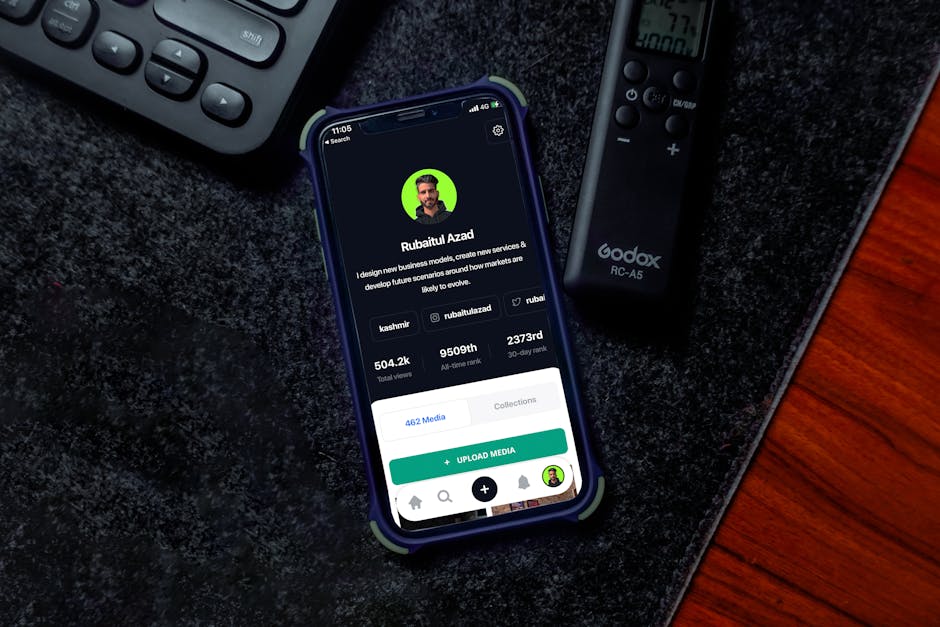
The Importance of User Engagement in Affiliate Marketing
In the dynamic world of affiliate marketing, user engagement plays a pivotal role in determining the success of a campaign. As competition continues to intensify, marketers must prioritize strategies that not only capture attention but also foster a meaningful connection with their audience. This blog post delves into the significance of user engagement in affiliate marketing and offers actionable insights to enhance your strategies.
Understanding User Engagement in Affiliate Marketing
User engagement refers to the interaction between users and your content. In affiliate marketing, it’s about how effectively you can engage your audience to drive them towards making a purchase through your affiliate links. Engaged users are more likely to trust your recommendations and convert into loyal customers.
Why User Engagement Matters
According to a study by Forrester Research, engaged customers are five times more likely to purchase only from their preferred brand, four times more likely to refer the brand, and seven times more likely to try a new offering. These statistics highlight the power of engagement in influencing consumer behavior and enhancing brand loyalty.
Key Benefits of User Engagement in Affiliate Marketing
Engagement is not just about clicks and conversion rates; it’s about building a sustainable relationship with your audience. Here are some key benefits:
1. Increased Conversion Rates
Engaged users are more likely to convert because they trust your brand and the value it offers. A study by HubSpot revealed that businesses that engage users effectively see a conversion rate increase of up to 25%.
2. Enhanced Brand Loyalty
Consistent engagement fosters trust and reliability, leading to enhanced brand loyalty. Loyal customers are more likely to return and make repeat purchases, significantly boosting your affiliate earnings over time.
3. Amplified Organic Reach
Engaged audiences are more likely to share your content, amplifying your reach through word-of-mouth and social media. According to Nielsen, 92% of consumers trust recommendations from friends and family over any other type of advertising, highlighting the potential of engaged users in expanding your influence.
Strategies to Boost User Engagement in Affiliate Marketing
Now that we’ve established the importance of user engagement, let’s explore some strategies to enhance it effectively:
1. Create High-Quality, Relevant Content
Your content should be informative, valuable, and relevant to your audience’s interests. Leverage tools like Google Trends and BuzzSumo to identify trending topics and keywords in your niche. Ensure your content provides actionable insights and addresses the pain points of your audience.
2. Optimize for SEO
Optimizing your content for search engines enhances visibility and drives organic traffic. Use keyword-rich titles and headers, and incorporate long-tail keywords naturally throughout your content. Ensure your site loads quickly and is mobile-friendly to improve user experience.
3. Leverage Visual Content
Visual content, such as images, infographics, and videos, can significantly boost engagement. Research by HubSpot shows that visual content is 40 times more likely to get shared on social media than other types of content. Use compelling visuals to complement your written content and convey complex information effectively.
4. Engage with Your Audience
Encourage interaction by asking questions, conducting polls, and responding to comments promptly. Building a community around your brand fosters a sense of belonging and encourages users to engage more actively with your content.
5. Personalize User Experience
Use data analytics to understand user preferences and tailor content accordingly. Personalized experiences can increase engagement by making users feel valued and understood. According to a report by Epsilon, personalized emails deliver 6x higher transaction rates.
Measuring User Engagement Effectively
To ensure your strategies are working, it’s crucial to measure user engagement effectively. Here are some key metrics to track:
1. Click-Through Rate (CTR)
CTR measures the percentage of users who click on your affiliate links compared to the total number of users who view the content. A high CTR indicates effective engagement and interest in your offerings.
2. Time on Page
This metric indicates how long users spend on your page. Longer durations suggest that users find your content valuable and engaging.
3. Bounce Rate
Bounce rate measures the percentage of visitors who navigate away from your site after viewing only one page. A lower bounce rate indicates that users are exploring more content, signaling higher engagement.
4. Social Shares and Comments
The number of shares and comments on your content reflects the level of engagement and resonance with your audience. Higher numbers indicate strong user involvement and interest.
Conclusion
In the competitive realm of affiliate marketing, user engagement is a critical factor that can significantly influence your success. By focusing on creating high-quality content, optimizing for SEO, leveraging visual elements, and personalizing user experiences, you can enhance engagement and build a loyal audience. Remember to measure your efforts using relevant metrics to refine your strategies continuously.
As you implement these strategies, keep in mind that building genuine relationships with your audience takes time and effort. Stay committed to providing value, and you’ll see your affiliate marketing efforts thrive in the long run.
Do you need your own Affiliate Marketing Expert? Try the chatbot for free




